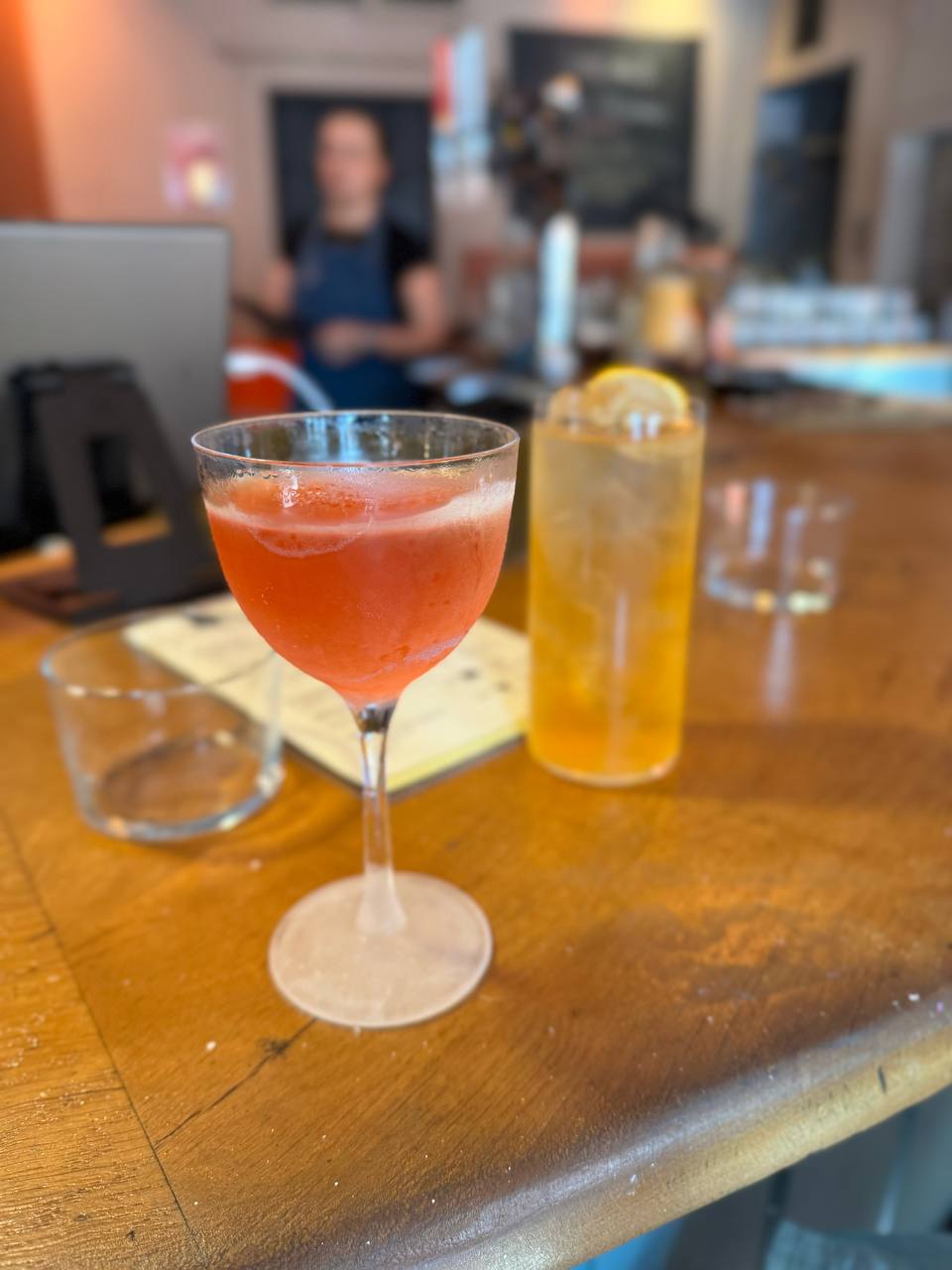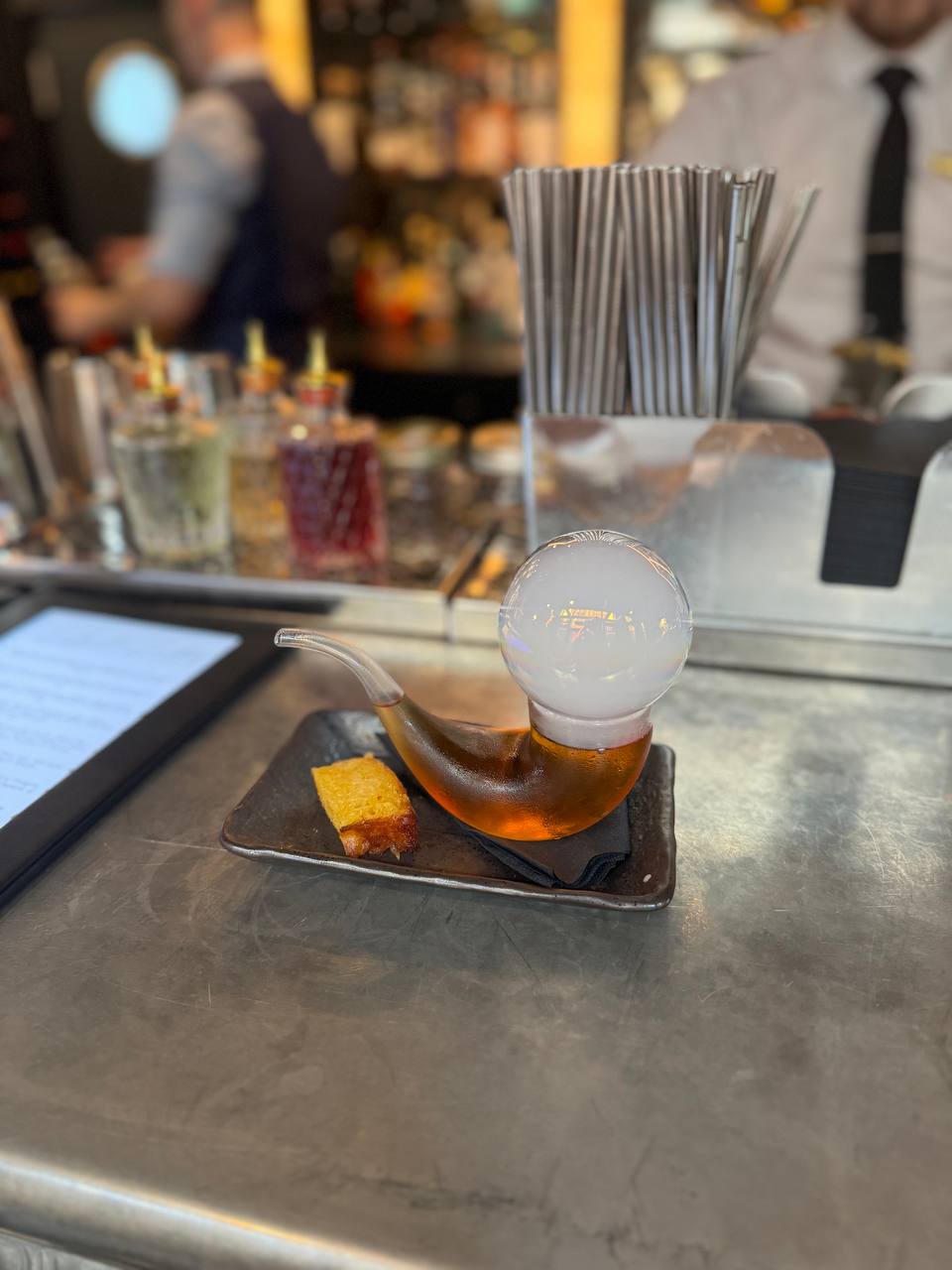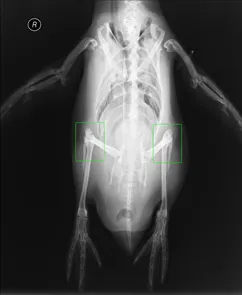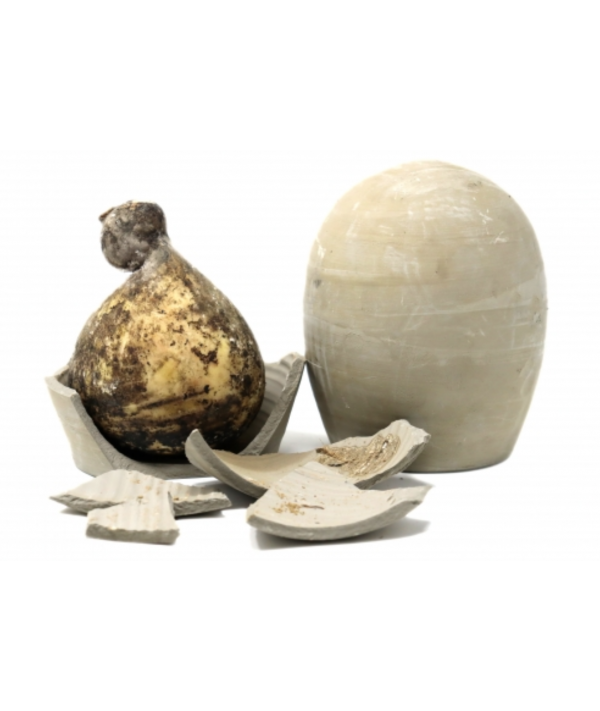|
Your weekly crème de la crème of the Internet is here!
06.08.2024 (read in browser)
This is the free monthly edition of the newsletter. If you want to receive every weekly edition, plus access the full archive of both free and paid newsletters, subscribe here.
-
#209 on West Coast, where I drive a lot across Scotish lakes, figure out origins of "Bon Appetite", and check out a book about British food by one of my favourite British chefs.
-
#210 on the Lakes, where travel around English lakes, but don't drive at all, discuss boredom, and sample crisps with Northern flavours.
-
#211 on different food, where I don't go to any lakes but eat a lot instead, as well as explore the future of Ketone drinks, and share my thoughts about some modern Russian literature.
Don't miss out on future newsletters – upgrade now to get access to all of them.
On another year of Fringe
Every August the city of Edinburgh transforms from a quiet touristic village into a full-blown comedy festival, and it takes its tall: streets are harder to walk, trains are too crowded to casually stroll in.
At the same time, it's nice to have more than two theatres for a change, so for the second year in a row we book a few dozens of performances, sometimes three or four a day, and then spend our evenings walking from one underground club to another for some laughs.

The only caveat is the time between the shows: too little, and you risk coming too late, too much, and you end up making circles around the city centre hating tourists.
The trick is to have an hour or two maximum, and to spend them in one of the many cocktail bars as it's just enough time for a few drinks. The problem though is, most decent bars are very far from the streets where the festival takes place – there must be some reason behind it – so this time we had to be creative and gradually explore places we've never been to.

Nothing particularly impressive yet, unfortunately, but at least most of the shows were a blast.

The majority performance we've booked we already saw last year, and so far not a single regret of booking these shows again: the content is obviously mostly different, but the skills are still there.

My favourite ones so far were MC Hammersmith (where MC stands for Middle Class) who spent an hour doing improvised rap about random words, people in the room, and their belongings; Ali Woods with some incredibly emotional but hilarious story about relationships; and Connor Burns with his thoughts on turning 30 – something I will be relating to very soon.
Things I enjoyed reading
While I've personally avoided the trap of unpaid tech support for relatives by moving across the globe after graduating in software engineering, I strongly agree with the sentiment expressed in this article: all work, whether done by a professional or a friend, deserves compensation.
Unfortunately, these types of favour rarely have an end date - once I make the commitment, it's open ended and ongoing. If I provide tech support, I become the go to tech support person forever. The absolute worst are those who tell me 'what I did last time must have caused the new problem'. For websites, I will be constantly amending them, maintaining them, sorting out hosting... and of course if the site ever goes down, it's my fault, and I will get an urgent call from you. For MVPs, I will get trapped in an endless cycle of adding 'just one more feature', as the reality slowly dawns that their amazing idea may not be so amazing after all.
It took me years to learn the importance of saying "No" in such scenarios. This ties in with the advice-giving discussion from last week's newsletter: most people don't follow through on advice anyway, so there's little value in providing it unsolicited or without compensation.
That is, if you value your skills and time enough.
Not my proudest trait, but internally I am split between writing all my code in vim without plugins and using the most modern IDE available. The latter is partly due to visual components it provides. I don't believe GUI is a solution for any problem: git is perfectly fine on its own and doesn't need a mouse to use, but code in general might benefit a lot from being a bit more graphic:
If you are skeptical about needing these, let me ask you: do you know exactly how your data is laid out in memory? Bad memory layouts are one of the biggest contributors to poor performance. Yet it is very hard to "see" how a given piece of data is laid out and contrast it with the access patterns present in the codebase.
Alternatively, do you know all the external dependencies your code hits when responding to a given HTTP request? Are you sure? Didn't you notice that Bob just added a call to a rate limiter service in the middleware? Don't worry, you'll learn about it in the next outage.
For both of these questions, the answer is usually "I think I know the answer?" with a creeping fear that maybe you missed something you couldn't see.
When I was learning algorithms and data structures, there were a few videos attempting to visualise how items swap in merge sort, or how data is distributed in memory when you build BFS, and these things helped a lot. Surely if there is a way to do the same to the code we right daily, it will also make understanding and bug fixing easier?
I'm not a big kimchi fan, but I generally don't like lactofermented things, so I was opening the aricle hoping for unusual recipes (there are hundreds of ways to make kimchi), but ended up reading commentary on social hierarchy in South Korea:
As was common practice at the time, Ms. Kang reserved the best ingredients for the elders and used the leftovers to prepare meals for herself and the household servants.
Baek-kimchi, made with cabbage and typically seasoned with jujubes, pears and chestnuts, has a milder flavor because it lacks gochugaru. Brainstorming ideas for the kimchi served to younger family members, Ms. Kang remembered that her grandmother-in-law once said red pepper seeds were as effective as gochugaru to achieve flavor. Over time, this recipe became her signature — winning awards and landing her media attention.
There are also only five people in South Korea who are designated as "Food Grand Masters", and it sounds like I am missing out on some secret competition I didn't even know I need.
I grew up (and still am) dreaming about the future where diseases, including the most common one – death – are gone, so my reading list was a mix of sci-fi and transhumanism writers. With the Internet it's both way simpler but also harder to be aware of the current state of the union in the field, so posts like this one are a great way to keep up:
Unlike the longevity institutions of the past, most of these newer ones have far grander ambitions than interventions like calorie restriction, supplements, and sauna usage. Instead, they focus on areas that, if realized, would yield fundamental step changes in human lifespan. Fields like cryogenics and cellular reprogramming. If there is anybody in the world I’d trust to be given billions of dollars, it’d be smart and ambitious people with that research plan.
The author overviews most main directions of longevity research, all accompanied with links to published papers, so at least I don't feel like I am missing out as much as before.
It's been a while since I moved from one company to another, but I often reflect on my career choices and plans, and this is a very good way to put it:
All of you reading this (programmers anyway) will eventually hit a point where you can't do the job anymore for one of the above reasons. It's important to be honest with yourself. Are you keeping up to date sufficiently to continue the job? Is the job even interesting anymore, or is there something else you would rather do? Maybe your programming is not fun, or perhaps it's no longer challenging enough. Despite how unfulfilling it is, I've known people who enjoy the paycheck, do boring work, and keep doing it. That's a choice, but I was never satisfied with that.
Career progression is often a painful topic, but my trick is diversification. I have enough hobbies to keep me occupied even when I get less satisfaction from my day-to-day job, and even there my perspective is different from that of many. I always thought of software development as a way to reduce some user's pain. It doesn't really matter whether I move buttons in a mobile app, or send a JSON file from one server to another, or teach fake neurons to tell apart cats and bread, as long as there is a user somewhere out there whose life will become less painful because of my changes, I am happy with what I am doing.
On the flip side, I become very opinionated if I am being asked to do something and I don't agree it removes someone's pain.
And on topic of dealing with a user's pain, this is a great example of why I think software engineering is as important as being able to read or write:
A few days ago I was fumbling down the stairs to our kitchen at ~3:00 in the morning to fix my hypo. (Night hypoglycemias are especially bad: what if you don’t wake up?) On the stairs I had the thought: why the hell is there no app into which I’d put my past X blood glucose values, my usual daily schedule, my weight, height, gender, age, whatever, and it would let me play with some kind of prediction (interactively!) and find good dosages / meal times / injection times? Then I would have a potentially good target to get to, and over the course of a few days I could gradually adjust my real dosage to that level and see how it behaves, and hopefully stay in the 4-10 mmol/l range much more easily.
A few decades ago people who spoke English felt like they have super powers, these days it's those who сan write code, whether it's to settle your own diabetes treatment and simulate insulin spikes, or to run self-host services and save hundreds, or to write a few simple apps to help with your daily routines.
Imagine you build a time machine and fly back to, let's say, 1925. What'd you do to get most value for money? Some researchers suggest that buying a few stocks would be very reasonable:
Cigarettes and asphalt, my friends. Cigarettes and asphalt. Marlboro-maker Altria Group, previously known as Philip Morris, tops the list with a truly eye-popping return of nearly $2.7 million dollars per $1 invested back at the end of 1925. Vulcan Materials — which went public under that name 1957 after a merger with Union Chemical — provided a large share of the asphalt and rock used to build the interstate highway system, was second on the list with $1 invested at that same starting point returning nearly $400,000 for ultra long-term buy-and-holders. Railroad Kansas City Southern, which fell out of the database after it was a purchased by Canadian Pacific in 2021, comes next, and so on down the line.
Can't say I'd predict those stocks to be honest, but also personally I would be very much satisfied with just traveling to 2007 and buying some BTC and Apple shares.
I love to read, but I rarely wonder why. Is it striving for knowledge? Occasionally yes, but that won't explain why I read pretty much everything else, from sci-fi to Harry Potter fanfiction.
For all avid readers who have been self-medicating with great books their entire lives, it comes as no surprise that reading books can be good for your mental health and your relationships with others, but exactly why and how is now becoming clearer, thanks to new research on reading’s effects on the brain. Since the discovery, in the mid-nineties, of “mirror neurons”—neurons that fire in our brains both when we perform an action ourselves and when we see an action performed by someone else—the neuroscience of empathy has become clearer. A 2011 study published in the Annual Review of Psychology, based on analysis of fMRI brain scans of participants, showed that, when people read about an experience, they display stimulation within the same neurological regions as when they go through that experience themselves. We draw on the same brain networks when we’re reading stories and when we’re trying to guess at another person’s feelings.
At least now I can say that even if it seems like I lack emotional intelligence, given how much I read, I am very good at understanding emotions of people around, I just don't usually care much.
These days we know that even though Ancient Greek, Sanskrit, and English look very different, they all share the same roots, but we don't really know much about the roots themselves. A decade ago we knew even less, so I am quite excited to see what's coming in the field:
For instance, the English word “father” is “pitar” in Sanskrit and is “pater” in Latin and Greek. “Brother” is “bhratar” in Sanskrit, “frater” in Latin. Although Jones wasn’t actually the first to notice the similarities, his pronouncement that there must be a common origin helped to spur on a movement to compare languages and trace their relationships.
A major advance came in 1882, when Jacob Grimm formulated what would later be called Grimm’s Law. Grimm is best known today as one half of the Brothers Grimm, who collected and published Grimm’s Fairy Tales. But in addition to being a folklorist, Jacob Grimm was also an important linguist.
It also often makes me think about giving another try to classics, and learning Latin and Greek, but with the advancement of chatbots it is harder and harder to justify.
If I were to buy a new car, Masda MX-5, also often known as Miata, would be one of my go-to options (specifically, the RF model, which is the only one with a hardtop), so I quite enjoyed this post about restoring a 30 year old car to its original beauty (and keeping it fully functional):
There were some small issues. The paint (which was original) had faded from weather and time. Scratches were impressively minor for a 33 year old car. The battery hold down clamp was missing, as were the brackets for the spare tire and jack. The car’s antenna had broken off at some point. The second owner had installed an ugly aftermarket LED interior light. The sound system was original. It had an AM/FM radio and a cassette player.
I bought it.
I am quite far from being able to do most things the author did as a weekend project, but I'd love to one day. So far I am quite happy to be able to check tyre pressure and inflate them when needed. Probably next time I will learn how to replace the tyres themselves.
One step at a time.
Things I didn't know last Tuesday
There will be other important questions answered in this week's newsletter, but this is the most important one:
Penguins are designed to be streamlined and hydrodynamic, so having long legs would add extra drag. Having short legs with webbed feet to act like rudders, helps to give them that torpedo-like figure. If we compare bird anatomy with humans, we would see something a bit peculiar. By taking a look at the side-by-side image in Figure 1, you can see how their leg bones compare to ours. What most people mistake for knees are actually the ankles of the birds. This gives the illusion that bird knees bend opposite of ours. The knees are actually tucked up inside the body cavity of the bird! So how does this look inside of a penguin? In the images below, you can see boxes surrounding the penguins’ knees.

Now I just have to hope this question gets raised at a pub quiz in a few decades and I will save the day by knowing the answer.
I vaguely remember talks about launching something called alongside "Green Wave" in my hometown a decade or so ago, where if you're driving with a certain speed, you won't have to stop at traffic lights at all. Not sure how well it worked, but Google is doing a somewhat different thing, where it tries to control multiple things simultaneously – from cars' navigation systems to traffic lights – to reduce the wait times overall, for all cars on roads, not selected few.
The Green Light team used Google Maps’ driving trends to create an AI model that measures how traffic flows through an intersection, including patterns of starting and stopping, average wait times at a traffic light, and coordination between adjacent intersections. The model identifies possible improvements, like shaving off several seconds from a red traffic light during off-peak hours or an opportunity to coordinate between intersections that aren’t yet synced. The city’s engineers then review those recommendations and can implement them in as little as five minutes, using their city's existing infrastructure.
A side effect is also the reduction of fuel emissions.
There is no need to control borders within Schengen countries, but sometimes there are indeed control measures in place, and apparently the countries have to record their introduction and reasons:
As of June 2024, there were 440 recorded border control reintroductions, with the earliest such entry from Oct 21, 2006. In the beginning, member nations did indeed use this escape hatch in the intended manner: to establish extra security around specific high-profile, high-risk events.
The post features a few interesting charts, the most interesting one to me was the comparison of countries who reintroduced the control the most.
I remember occasional waves of spam in my early teens, where people would send each other messages like "Forward to five your friends or you'll be unlucky". I had no idea first chain letters like these were already a thing in the 19th century.
It was there in 1888 that one of the earliest known chain letters came from a Methodist academy for women missionaries. Up to its eyes in debt, that summer the Chicago Training School hit upon the notion of the “peripatetic contribution box“—a missive which, in one founder’s words, suggested that “each one receiving the letter would send us a dime and make three copies of the letter asking three friends to do the same thing.”
I wonder how profitable they were though.
When I was a wee bairn, I never understoon using WASD to navigate in computer games – it felt incredibly inconvenient. That is, until I started to play Quake more or less consistently.
It took some experimentation—including a strange attempt to move with WADX—but Fong settled on WASD and has been using it since Doom. Did he invent the scheme? No, probably not. Others were also gravitating to the left side of the keyboard for Doom at the same time. But without Fong's influence, the default could have ended up different. It might have been EDSF, or stranger configurations like ZXC to strafe and move backwards, and the right mouse button to move forwards. Some early shooters bound movement to the arrow keys. In 1994, System Shock used ASDX, while Descent used AZ for forward/reverse and QE for banking (if you didn't happen to have a joystick).
Now it makes more sense, but I can't say EDSF would be much different anyway.
At least some researchers are answering important questions and conducted a research trying to figure out ways of improving cat food flavours.
The researchers found that most cats preferred and ate more of the foods sprayed with their attractants, particularly the sprays with proteins that were further broken-down by the enzymes and contained more free amino acids. These compounds are important flavor precursors that can undergo the Maillard reaction, which likely produced many different aroma-enhancing compounds during the heat treatment step. The favored foods contained more mushroom and fatty flavors as well, while the less-enjoyed foods featured acidic- and sweet-tasting compounds, possibly because fewer Maillard reactions occurred.
Seems like the easiest way to make something appealing to a cat then, is to take the most easily accessible protein broken-down by enzymes – fish sauce – and spray it on cat food. I must say though, judging by this paper, Rene Redzepi is a cat.
Not sure what's more hilarious in this story: the fact that medics were not agreeing with dangers of cocaine, or the fact that whoever decided to remove it form Coca-Cola spent next years denying that it ever contained cocaine in the first place.
In 1901, the Atlanta Constitution linked the dangers of Black cocaine use to soft drinks containing the drug, which it claimed could “unconsciously cultivate” a drug habit. That same year, Candler called for a change to the Coca-Cola formula, replacing cocaine with heavier doses of sugar and caffeine—and started denying that the soda had ever contained cocaine to begin with.
But answering the question in the title, Asa Grigs Candler is the man who single-handedly changed the drink's flavour forever.
I came across the term and had to look it up:
A cup and handle price pattern on a security's price chart is a technical indicator that resembles a cup with a handle, where the cup is in the shape of a "u" and the handle has a slight downward drift.
The cup and handle is considered a bullish signal, with the right-hand side of the pattern typically experiencing lower trading volume. The pattern's formation may be as short as seven weeks or as long as 65 weeks.
 :max_bytes(150000):strip_icc():format(webp)/CupandHandleDefinition1-c721e47fd1f7451997d0d5d941f6e174.png) :max_bytes(150000):strip_icc():format(webp)/CupandHandleDefinition1-c721e47fd1f7451997d0d5d941f6e174.png)
Most likely I was meant to learn it at uni but I was too busy writing code.
Someone (somewhat recently) made caciocavallo cheese and wrapped it in clay, and now people pay lots of money because of its unusual aging vessel:
In this case, a layer of clay was not spread directly on the rind of the cheese, but a caciocavallo of about 1 kg matured for a few weeks was enclosed in a pot worked on a lathe. Raw earth creates an almost totally reductive environment, therefore in the absence of oxygen, while temperature and humidity are kept constant.

I couldn't find if it is really a regional thing, or just a marketing genious, but probably I could give it a try at home.
In some countries parking on bank holidays is free, in some other countries it follows the same rules as parking on Sundays, but here in Scotland (and maybe in the rest of the UK too) not all holidays are equal:
The parking holidays take place on these days regardless of any other holidays. You can park free of charge in public parking bays and on single yellow lines on these dates. Please note that parking holidays do not carry over to the next working day.
This year parking holidays in Edinburgh are on New Year's day, Easter Monday, Christmas Day, and Boxing Day.
Book of the week
Temporarily putting Russian literature aside, this week I've picked up some retelling of Greek mythology (or so I thought). To be fair, I got Madeline Miller's The Song of Achilles a few months ago, but the first few pages were a struggle to get through, so I kept postponing it again and again, and wrongly so:
Chiron had said once that nations were the most foolish of mortal inventions. “No man is worth more than another, wherever he is from.”
“But what if he is your friend?” Achilles had asked him, feet kicked up on the wall of the rose-quartz cave. “Or your brother? Should you treat him the same as a stranger?”
“You ask a question that philosophers argue over,” Chiron had said. “He is worth more to you, perhaps. But the stranger is someone else’s friend and brother. So which life is more important?”
We had been silent. We were fourteen, and these things were too hard for us. Now that we are twenty-seven, they still feel too hard.
He is half of my soul, as the poets say. He will be dead soon, and his honor is all that will remain. It is his child, his dearest self. Should I reproach him for it? I have saved Briseis. I cannot save them all.
I know, now, how I would answer Chiron. I would say: there is no answer. Whichever you choose, you are wrong.
I grew up loving Greek mythology. It wasn't really covered much in my school curriculum, probably because I went the STEM way, not the Ancient History way, but I loved the myths, and movies about the myths, and occasionally even cartoons about the myths as well. Most of them mentioned Achilles, some of them had a few words to say about Patroclus, but none actually told anything about their relationship.
The book doesn't say anything explicitly either, but throughout the whole story, it often feels like a romance, not a retelling of a famous myth from the perspective of a different participant.
Definitely not what I expected, but a great book nonetheless, so I might as well check out the second installment in the series, Circe.
Thank you and see you in a week
(or in a month)!
If you'd like to support the newsletter, please subscribe to the weekly plan. Otherwise you will keep receiving the letters on a monthly cadence – no need to do anything to opt-in.
If you have any questions, or want to suggest a link for the next newsletter, please drop me a message on Twitter or reply to this email.
Cheers! 🍸
|





